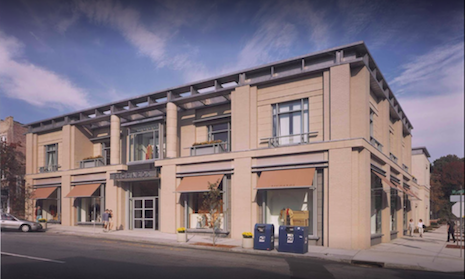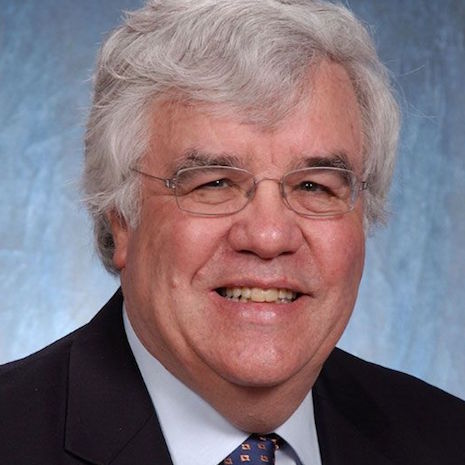- About
- Subscribe Now
- New York,
August 16, 2019

 The Richards luxury department store in Greenwich, CT, is a favorite of hedge-fund executives with offices and residences nearby. The store is known for its extraordinary attention to detail and focus on personalized customer service. Image credit: Richards
The Richards luxury department store in Greenwich, CT, is a favorite of hedge-fund executives with offices and residences nearby. The store is known for its extraordinary attention to detail and focus on personalized customer service. Image credit: Richards
By Bob Shullman
Recently I had a leisurely lunch with friend who, like me, focuses on luxury, affluence and wealth.
During our lunch, my friend asked me a question I do not recall ever being asked before and one I do not believe I honestly have ever thought about before.
The question was, “What’s your favorite brand?”
Piece of cake?
After thinking about the question for a few seconds, I then asked my friend what did he mean by “favorite”? He then smiled at me and said, “Do you have a favorite store?” I said yes. That is an easy one to answer. It is a local patisserie where I shop quite frequently for croissants, scones, muffins and desserts.
My friend’s immediate follow-up question was, “Why is this patisserie a favorite of yours?” I told him that it is my favorite local store because of the great quality of the baked goods they sell and the personalized and warm service the store staff delivers to me all the time.
My friend then asked me, “Do you have any other favorites?” and my immediate answer was Amazon, which was not what I believe he expected to hear.
“Why is Amazon a favorite of yours?” he then asked?
My initial answer was Amazon makes shopping for virtually all products we want to buy incredibly easy.
With Amazon, I continued, “…with Amazon I don’t have to waste my time getting in my car and travelling to a store where I then have to deal with a salesperson who generally doesn’t want to help me find the product the store may or may not actually have in stock.”
Then I told my friend, “Assuming I do find what I want to buy in the store to which I just drove, the store’s salesperson many times points me towards a check-out counter where I usually have to wait in line to pay for what I want to take home with me.
“With Amazon,” though, I told him, “I know it sells virtually every product I may ever want to purchase except for most luxury brands and services that my family and I enjoy, plus automobiles, travel services, alcoholic beverages and a few other categories that we enjoy just by answering its headline question ‘What are you looking for?’”
After I type in what I am looking for into Amazon’s question box, I then scroll through what Amazon displays as options until most of the time I find what I want to buy in a few seconds. And when I find what I want, I then make one click to buy what I want because Amazon already knows my credit card details so I do not have to pull out my wallet and find a credit card to use.
Last but not least, what I just bought on Amazon is delivered to my door the next day, virtually all the time at no additional cost using my Prime account that we also use very frequently to view movies, other shows and music we enjoy.
Plus, we now have an Alexa in our kitchen that we use to get the weather forecast virtually every day, also to get basic recipes when we need them and play “Jeopardy” from time to time. And, recently, I used Alexa for the first time to buy an item and, as expected, it was very easy to do.
I then told my friend about what is not favorite-like about Amazon.
Tailored experience
All very good things, in my opinion, also tend to have some not-so-good aspects to them.
When I want to buy some fine, tailored clothing or fine jewelry, I know it is not something I will consider doing on Amazon because I then want personalized service from someone I trust who knows the clothing or jewelry I like to buy and will honestly tell me whether or not what I am trying on actually looks good on me.
Trust to me is a major ingredient of a “favorite.” That place is Richards, a high-end clothing and jewelry near me, where I have done virtually all my clothing and jewelry shopping for many years.
When I want to buy basic clothing items for which I know my size, I then go online to its Web site where I can pull up the details of virtually everything I have ever bought there to check on my current size and style for that item I am planning to buy and have it delivered to my home very quickly.
After lunch with my friend, when I was back in my office, I then thought again about his “What’s my favorite brand” question that initially stumped me. Why?
For many years, I have asked consumers “What’s a luxury?” After I gave my friend’s question some more thought, I realized I was stumped because the word “favorite” is not a word that my friends or I use very frequently. Why? I believe it is because the concept of a “favorite” brand depends on what category the brand is in, how much the brand costs and one’s prior experiences, if any, with the brands in the category of interest.
Also, I believe it is because virtually everything my family and I buy can be called a “favorite” because we do not make purchases solely based on what it may cost but we buy based on the value the purchase will be delivering.
If what we want is an everyday product or service, Amazon probably can provide it very conveniently and quickly.
However, if it is a croissant I want for breakfast, it is not Amazon I go to. I go to my local patisserie.
If it is very fine clothing or jewelry I want, it is not Amazon, I go to. I go to Richards, the store where I have known the person who takes care of me for years and knows exactly what I like.
These two stores are my favorites in those two categories.
BIG PICTURE, I believe a “favorite brand” is just like a “luxury brand,” a topic that I have studied for many years and about which I have given my presentations and written many articles.
Favorites and luxuries, I believe, are very personal in nature and can be defined and described in many different ways.
 Bob Shullman is founder/CEO of the Shullman Research Center
Bob Shullman is founder/CEO of the Shullman Research Center
Bob Shullman is founder/CEO of the Shullman Research Center, Greenwich, CT. Reach him at bob@shullman.net.
Share your thoughts. Click here